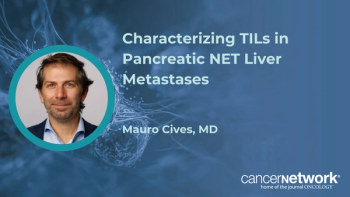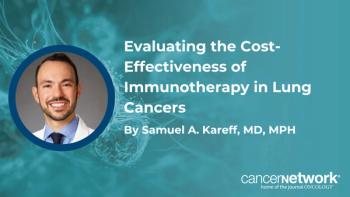
Caloric and Nutrient Restrictions Positively Impacted Response for Overweight Patients With B-cell ALL
Reducing caloric and nutrient intake for patients who were overweight or obese and undergoing induction for B-cell acute lymphoblastic leukemia was feasible and improved patient response, according to an early-phase trial.
For patients undergoing B-cell acute lymphoblastic leukemia (B-ALL) induction who were overweight or obese, caloric and nutrient restriction was feasible, reduced fat gain, and improved patient response to therapy, according to research published in Blood Advances.
The Improving Diet and Exercise in ALL (IDEAL) trial (NCT02708108) hypothesized that caloric and nutrient restriction could lessen fat mass gains and reduce postinduction minimal residual disease (MRD) for patients newly diagnosed with B-ALL.
“The IDEAL trial proved it is feasible to integrate this type of multifaceted intervention into induction chemotherapy,” wrote the investigators. “Although the intervention did not demonstrate significantly reduced fat gain in the overall cohort versus the historical control, post hoc analyses stratified by [body mass index] demonstrated differences in the effect from the intervention in [overweight/obese versus] lean patients.”
The trial population consisted of 40 patients with newly diagnosed B-ALL aged 10 to 21 years. This data were compared with a recent historical control cohort of 80 patients.
Overall, IDEAL intervention produced a +5.1% (interquartile range [IQR], 15.8) reduction in the median fat mass change from baseline for patients in the trial population compared with a +10.7% reduction (IQR, 16.0) for patients in the historical control (P = .13). This median fat mass change was not a statistically significant reduction. A stratified analysis showed a benefit for patients who were overweight or obese (+1.5%; IQR, 6.6) compared with the historical control (+9.7%; IQR, 11.1; P = .02).
More, the IDEAL interventions led to a statistically significant reduction in MRD risk for the patient population (odds ratio, 0.30; 95% CI, 0.09-0.92; P = .02). The study exceeded its thresholds for both adherence and feasibility, which were defined as 75% or more of overall diet and 80% or more completed visits, respectively.
The research also found that insulin and adiponectin were potential biomarkers of B-ALL chemosensitivity, warranting further investigation according to the investigative team.
“The IDEAL trial is the first prospective trial to test caloric and nutrient restriction plus exercise as a therapeutic modality to improve chemotherapy efficacy and disease response in a hematologic malignancy,” wrote the investigators.
The IDEAL intervention was designed to achieve caloric reductions of 20% or more during induction, reduce the fat intake, and increase activity for this patient population. The primary end point of the research was fat mass gain, with MRD of at least 0.01% and adherence and feasibility as key secondary end points.
A limitation of the research is the incorporation of a nonrandomized historical control group to compare the data. More, the research team noted that there was poor adherence to the exercise component of the research, which was compounded by a lack of physical activity.
“The IDEAL trial provides proof of principle for the feasibility and biologic plausibility of breaking the link between overweight physiology and tumor biology to improve chemotherapy efficacy, disease response, and survival in ALL: all without added morbidity or mortality,” concluded the investigators.
Reference:
Orgel E, Framson C, Buxton R, et al. Caloric and nutrient restriction to augment chemotherapy efficacy for acute lymphoblastic leukemia: the IDEAL trial. Blood Adv. 2021;5(7):1853-1861. doi:10.1182/bloodadvances.2020004018
Newsletter
Stay up to date on recent advances in the multidisciplinary approach to cancer.












































